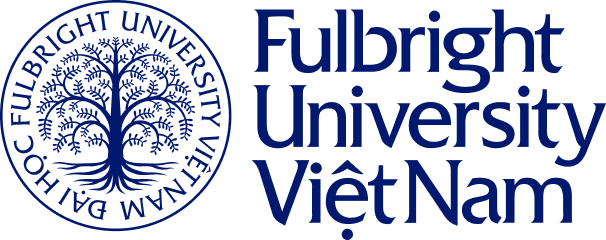
Quynh Anh is a junior at Fulbright University Vietnam and a Process Engineer Intern at Intel. Previously, she only wanted to explore social sciences and was intimidated by numbers, leading her to believe that she was best suited for subjects involving reading and essay writing. This perception created certain expectations and labels from those around her.
However, attending Fulbright was a significant turning point for her. The university instilled a belief in limitless potential, encouraging her to fearlessly pursue opportunities, especially those she previously thought were out of reach. Quynh Anh shares, “I was in an environment where my peers were also adventurous and bold. I realized I shouldn’t limit myself to specific fields or labels. This realization gave me the opportunity to explore my interests, make progress, and understand myself better each day. I learned to embrace challenges and failures as lessons for my future growth.”
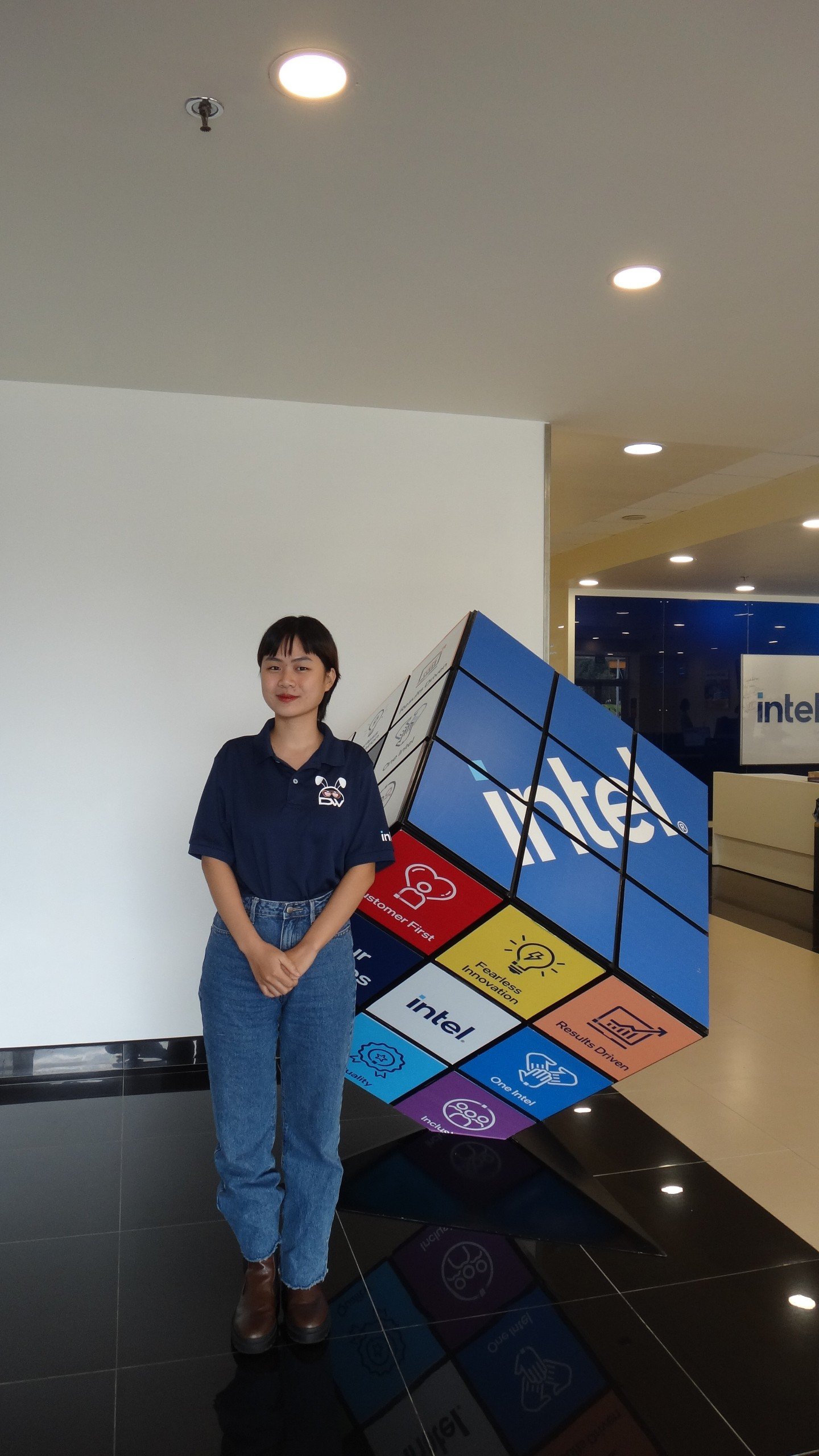
Quynh Anh started her internship as a Process Engineer at Intel.
Having transitioned from someone who believed she was only suited for Social Sciences, Quynh Anh now majors in Applied Mathematics with a minor in Human-centered Engineering at Fulbright. She also began an internship at Intel as a Process Engineer.
Problem-Solving Skills – The Key to Succeeding as a Process Engineer Intern at Intel
Intel is a technology manufacturing powerhouse with large-scale production and daily trend adjustments. Every staff must ensure smooth production processes, efficient machine operation, and optimization to maintain quality while boosting productivity. Issues in the factory are inevitable, making a mindset geared towards continual improvement and proactive solution-finding highly valued at Intel. Recognizing this, Quynh Anh, when applying for the Process Engineer position, armed herself with problem-solving skills—a proficiency she cultivated daily at Fulbright.
Quynh Anh’s problem-solving ability stems from her strategy to master courses that aren’t her strong suit. She recalled her experience in the Electrical Circuits & Design course with Dr. Le Quan, where she started with no knowledge of electrical circuits. Initially, she found the lectures and concepts challenging to grasp. To overcome this, she experimented with various learning methods until she found an approach that worked for her.
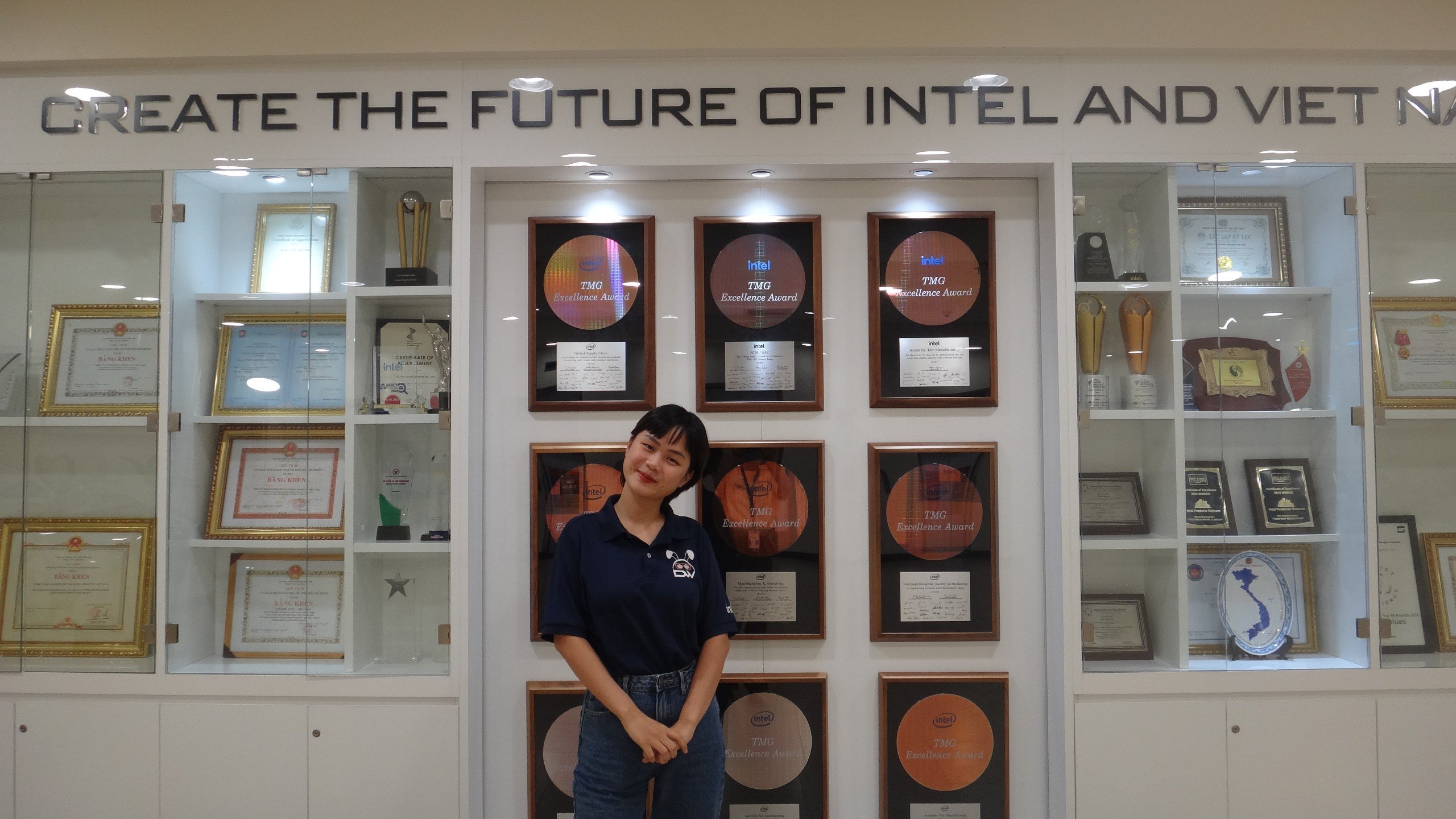
Problem-Solving Skills – The Key to Succeeding as a Process Engineer Intern at Intel
Moreover, Fulbright’s extracurricular activities offered Quynh Anh chances to improve her problem-solving skills. A few months ago, she led the choir team for Fulbright’s Commencement. As the team was newly formed with inexperienced members, it was a significant challenge. “I had to devise various strategies to help them sing well and harmonize. I took the initiative to manage the choir, find suitable methods, and rehearse repeatedly for members to learn how to blend their voices. I view every activity, big or small, as a challenge and an opportunity for self-improvement in problem-solving,” shared Quynh Anh.
The Unending Learning Journey in Any Position and Opportunity
Quynh Anh’s primary goal is to seize every learning opportunity. Intel offers her ample chances to both study and work in an environment where engineers are dynamic, experienced, and dedicated to continual improvement. Team members are always eager to share knowledge, support interns, and provide opportunities to participate in projects. Under their guidance, Quynh Anh has not only gained specialized knowledge but also practical experience.
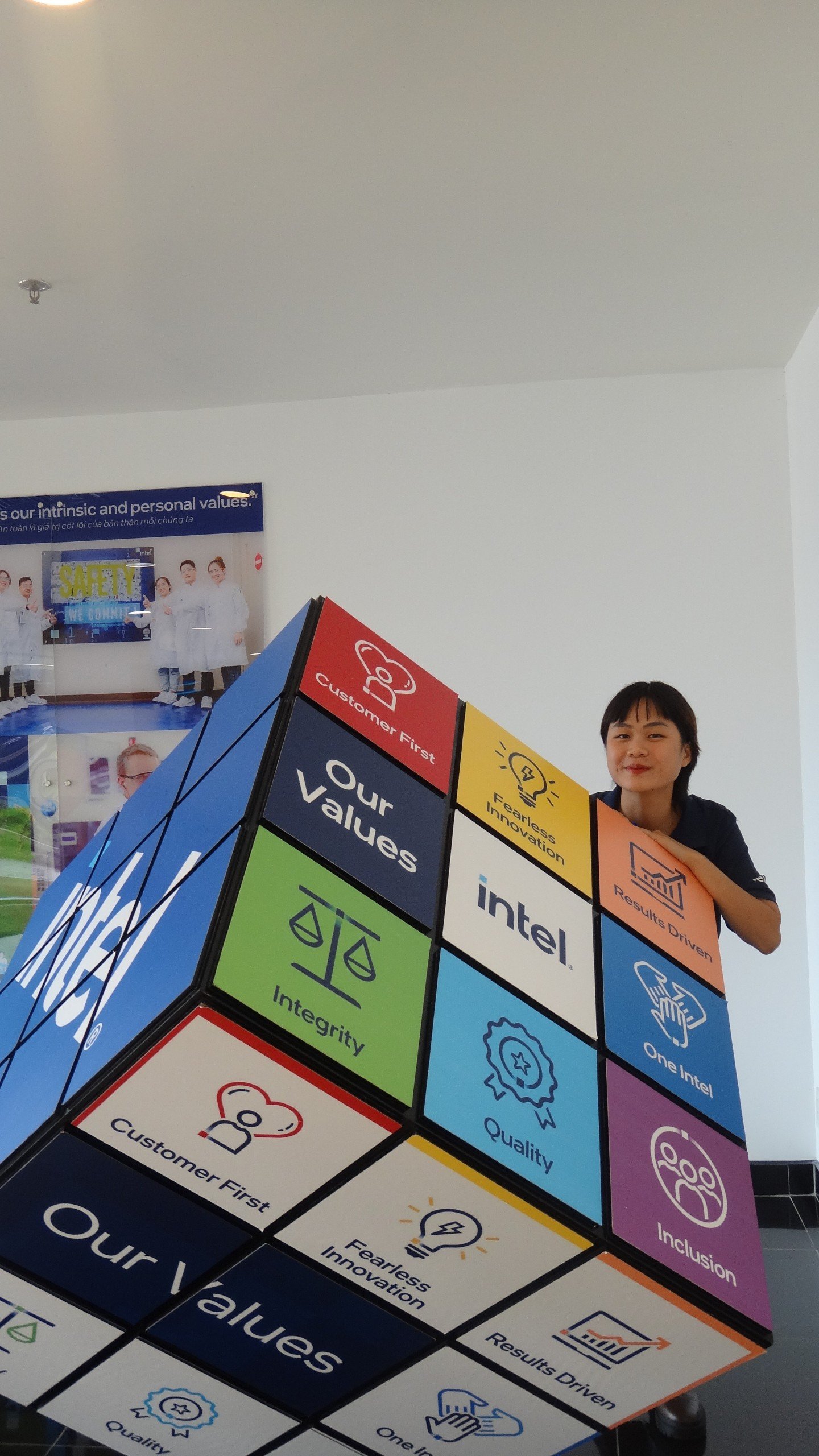
Intel offers her ample chances to both study and work in an environment where engineers are dynamic, experienced, and dedicated to continual improvement.
Specifically, Intel houses a large-scale chip assembly plant with an advanced automation system, where Quynh Anh spent a significant portion of her internship. “I seize the opportunity to work at the factory daily to observe and learn about the production process and machinery operation. This helps me develop better systemic thinking. Additionally, I actively attend many company training courses on problem-solving tools and methods, such as the Lean Methodology, A3, and 5M+ E,” Quynh Anh shares about her future plans at Intel.
Music and Engineering? They May Seem Incompatible, But They Harmonize Surprisingly Well
Quynh Anh enjoys producing electronic music and sound design as a hobby. Before studying Human-centered Engineering, she edited music based on intuition and online guidance, without fully understanding each control knob’s function or each button’s significance.
However, after taking engineering classes at Fulbright, Quynh Anh was surprised to discover many similarities between audio engineering terms and concepts from her engineering classes. This newfound knowledge deepened her understanding of concepts like cut-off frequency, low-pass filter, high-pass filter, and their functions.
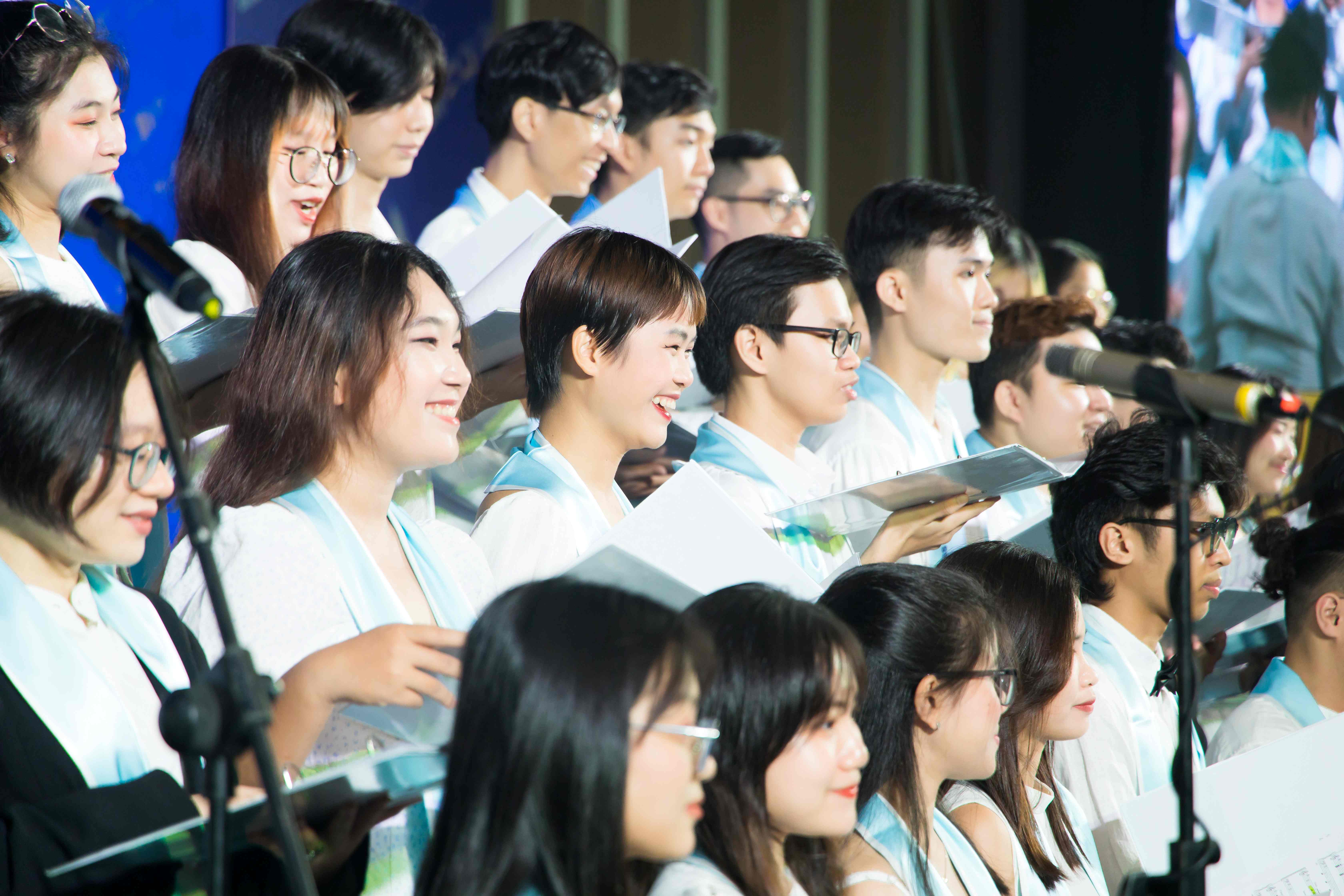
Quynh Anh led the choir team for Fulbright’s Commencement.
“Understanding the principles behind each music editing technique will help me design sound more confidently. It provides more creative space and allows me to pursue my hobby with greater passion,” Quynh Anh shared enthusiastically.




